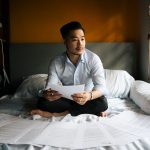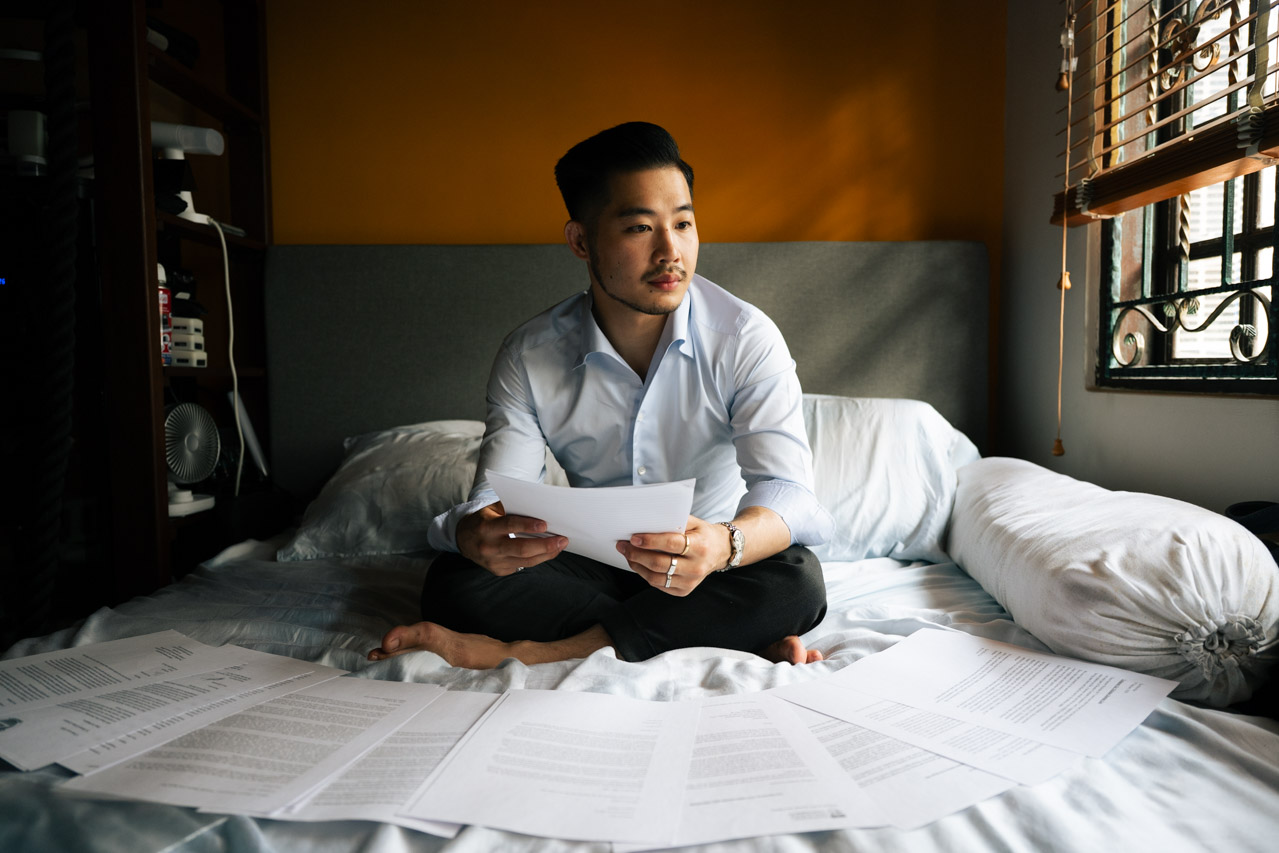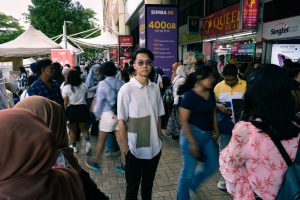This story is part of our photo-essay miniseries, Unexpected Adulthood.
Adulthood doesn’t come with age—it hits when life leaves you no choice. In this series, Singaporeans revisit the moments that forced them to grow up, ready or not.
All images by Justin Tan for RICE Media.
“My mum had to see me led out of my house in handcuffs. It was heartbreaking,” 28-year-old Nicholas Damien Goh recalls.
At the age of 24, his cold plunge into adulthood arrived not with a milestone, but with a sobering fight for his own life in the court of law.
Nicholas was facing potential charges for possession, consumption and trafficking of a CBD-based pain relief cream. He bought the cream from a US-based company to help manage worsening chronic pain from an injury sustained during his national service days after having little success with over-the-counter options in Singapore.
In 2020, while en route to school as a student at Nanyang Technological University (NTU), he received a panicked phone call from his mother.
“She told me that there were Central Narcotics Bureau officers looking for me, and asked if there was something that I had done. I made an immediate U-turn and came back home.”
After his arrest, he was detained at Police Cantonment Complex. In the months that followed, he would stand trial for a charge that could have rewritten the rest of his life—all while recovering from major hip surgery.
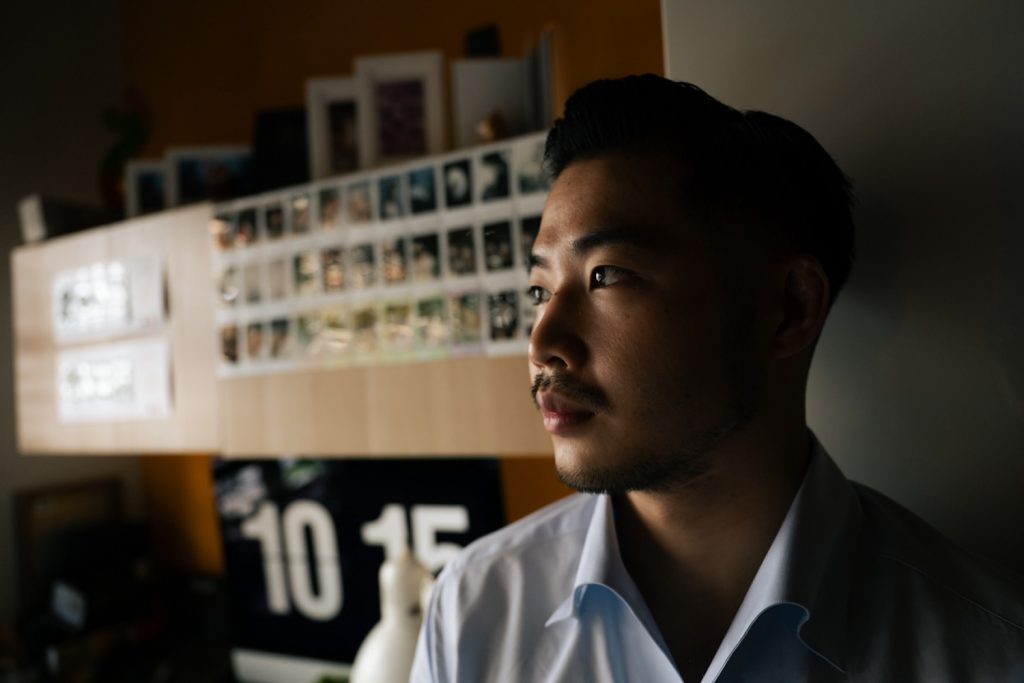
Chronic Injury, Chronic Relief
During his days as a reconnaissance soldier in the Singapore Armed Forces, Nicholas suffered a hip labral tear. At the time of injury, he was only administered a shot of painkillers. A service injury report wasn’t filed for him, and he was left to manage the pain on his own, he says.
The hip injury kicked off the chronic agony that would continue to haunt him in subsequent years.
After his national service stint, he pursued studies at the NTU School of Art, Design and Media, where he was heavily involved in film production. Looking back, lugging around heavy camera gear on multiple shoots likely aggravated the injury and worsened the pain, Nicholas reflects.
“It felt as though someone had put a knife in my hip. I think for anybody, that’s something that they would like to be addressed immediately.”
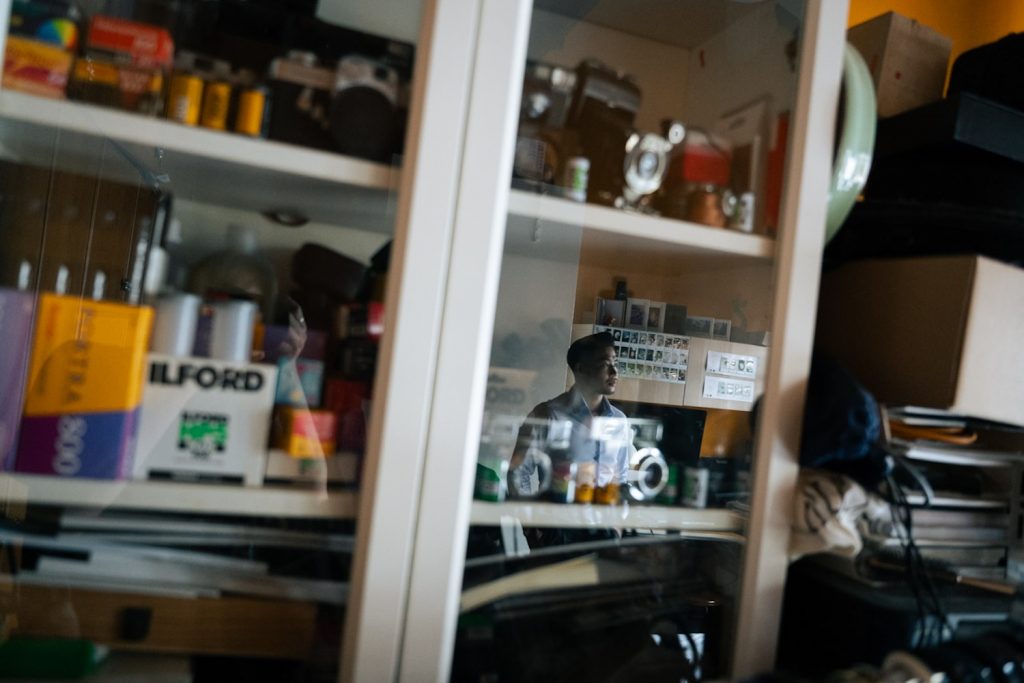
He experimented with many off-the-shelf pain medications, finding little success with the options available. Driven to desperation, he came across a company based in the US that sold a pain relief cream made with CBD, the cannabidiol compound from Cannabis sativa.
In Singapore, cannabis and its derivatives are listed as Class ‘A’ controlled drugs in the First Schedule of the Misuse of Drugs Act. Importing, possessing, and consuming these controlled drugs is an offence. Nicholas knew cannabis was illegal, but wasn’t aware that the same applied to ointments laced with hemp derivatives.
Soon enough, he started to rely on the cream for his chronic injury. “I could go about my day-to-day activities—I could go to school. I could go for production shoots, no pain.”
During this time, he also began competing in Brazilian Jiu-Jitsu. With injuries being commonplace in martial arts, he had the idea to share his experience with friends.
“I thought, if it works for me, there might be other people in the same shoes who might get hurt, but still need to show up for work the next day. So I started to share [the cream] with some of my sports friends,” he says.
“And I emphasise that this is for recovery. This is not for performance enhancement. This is not to get high.”
However, his pain relief was short-lived.
“Somewhere along the way, someone wasn’t happy with what I was doing and reported me to CNB.”
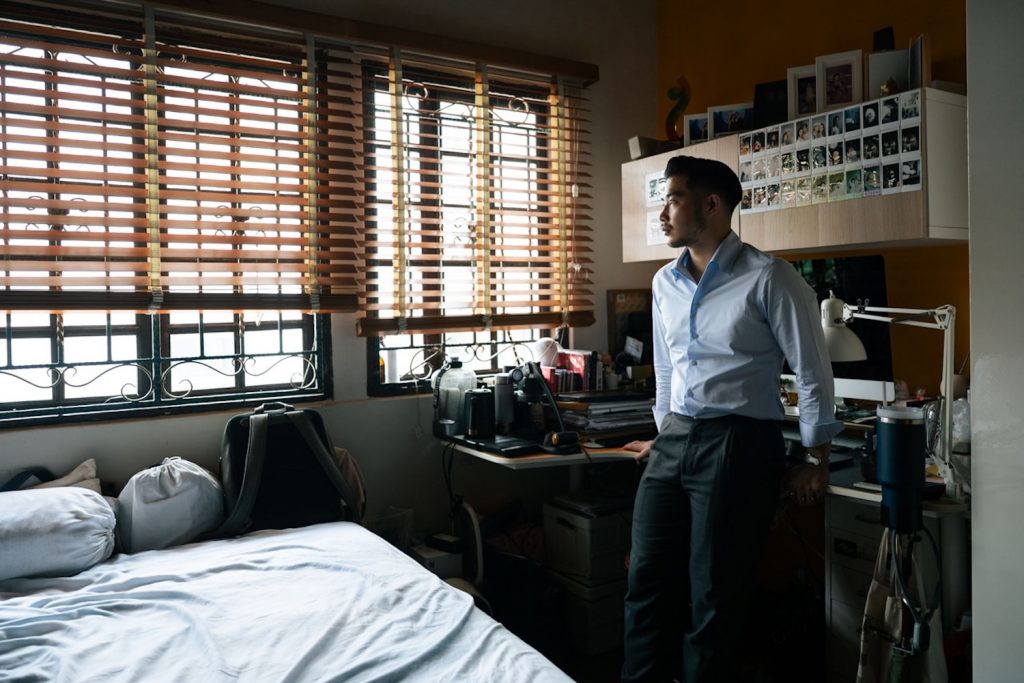
A Wake Up Call
His life took a quick turn. After complying with the CNB officers, Nicholas was led out of his house in handcuffs and placed in lockup at Police Cantonment Centre.
He was to be charged with possession, consumption and trafficking of illegal substances. It carries a heavy price.
“Once I saw the word ‘trafficking’, my mind started to run. I mean, we’ve seen cases published online—families appealing, people being hanged. I didn’t know what to expect.”
The next 36 hours in lockup proved to be the lowest point in his life as he wrestled with the real possibility of his life being over. He had nothing to do but ponder what went wrong.
“You don’t have your phone, you don’t have your laptop, you don’t have friends around, and you are only surrounded by four walls,” he recalls grimly.
“The light never switches off. The aircon never switches off. You are given a piece of cloth that’s like a towel, which you can either use as a pillow or blanket.”
Still, he speaks of his experience in the cell with a certain candour. “It was quite a traumatising experience—I don’t wish for anybody to be put into the same situation. But if you ask me, I think it was also the best wake-up call I had.”
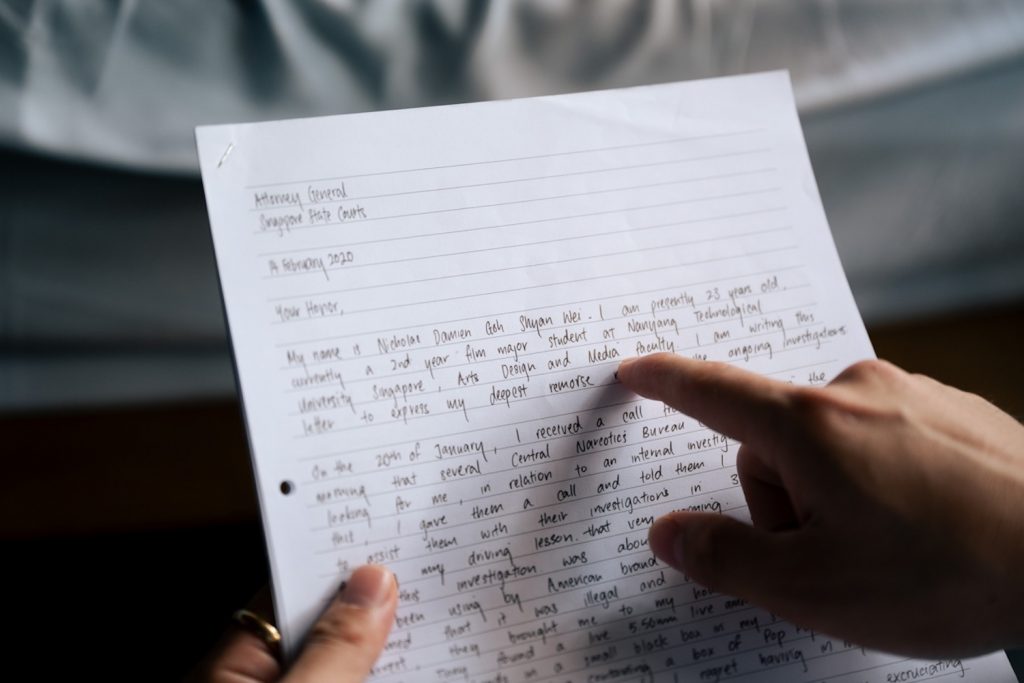
“Looking back, those 36 hours were the best 36 hours of my life. I was free from all distractions, and I could think about what kind of person I wanted to become.”
While lying on the cold concrete floor of the cell, he started to realise how unprepared he was for adulthood—financially, emotionally and mentally. It gave him much-needed time and space to reflect on his life and the decisions that led him to these circumstances.
Testimonies of Character
But there was another issue at hand—the concrete floor brought the pain in his hip roaring back.
After posting bail, he sought medical advice. He was informed by doctors that he had to undergo a full hip replacement at the age of 24. It would require months of physiotherapy afterwards.
As an athlete, the news was devastating. He wouldn’t be able to compete any more.
“At that point, I thought, why go through surgery if I might be hanged eventually? I’m just wasting my parents’ money.”
Nonetheless, Nicholas followed through with a hip replacement surgery. For the nine months that followed, he conscientiously kept up with physiotherapy while handling his charges. His lawyer suggested collecting testimonies of his character to support his case.
“I collected testimonials from people at different stages of my life—from secondary school, church, army, internship, university—I think I had about 50.”

It was a vulnerable process, reaching out to people. “There was a lot of shame and embarrassment having to explain the whole traumatic incident again and again.”
He doesn’t speak of these affirmations of character lightly. The testimonials were not only instrumental in clearing his charges but also served as a beacon of hope that helped him navigate the ordeal mentally.
“If it wasn’t for them, I wouldn’t be where I am today.”
He is especially grateful for the support from Amrin Amin, then the Senior Parliamentary Secretary of Home Affairs, who supported his case after Nicholas met him at a Meet-the-People Session.
However, some people Nicholas reached out to were also unwilling to testify on his behalf. That was another element of adulthood he came to learn—realising that friendships were something that he took for granted. Trusting friends and maintaining relationships felt like something that he had to cautiously relearn.
Likewise, the experience made Nicholas more assured in his own personal decisions, regardless of how people may judge him. With a growing weight of responsibilities on his shoulders, time has become an increasingly precious resource to share with the people around him.
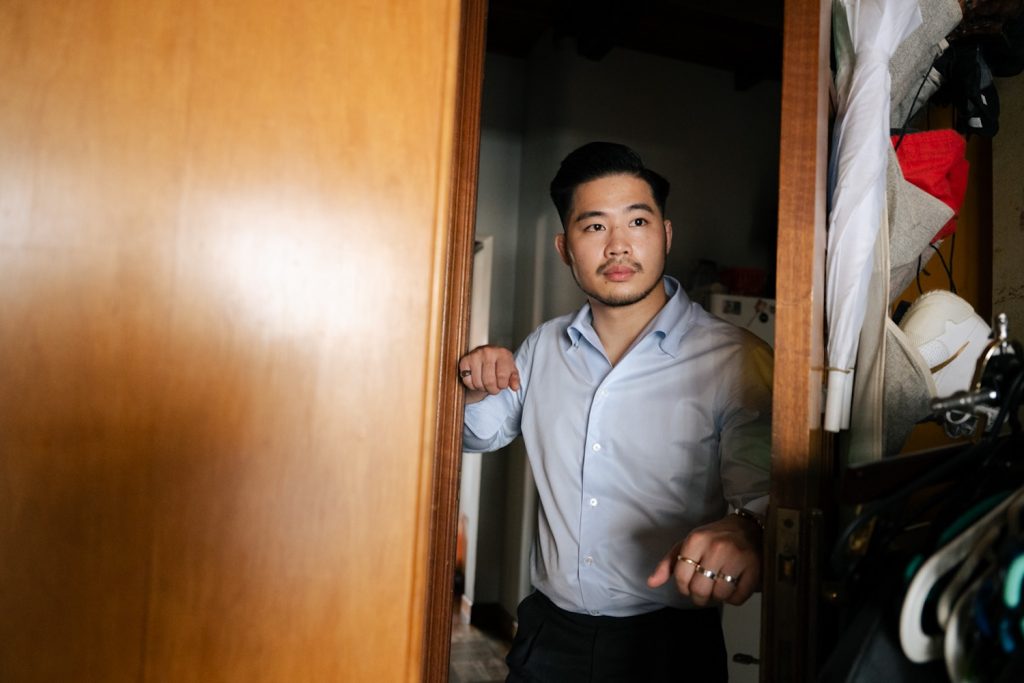
Speaking about his current profession as a financial consultant, Nicholas now believes it’s more about having grounded intentions.
“Joining the financial consulting line, people are always afraid of losing friends,” he says.
“To me, if your purpose is strong and your intentions are good, you have nothing to worry about. You’re not going to lose friends.”
Life After Hitting Rock Bottom
Good news eventually arrived in the form of a letter from the Attorney General’s Chambers, stating that the charges would be dropped against Nicholas, leaving him with just a stern warning.
“After having these charges, offences, labels placed on you, I felt a whole weight off my back.”
It was a strange kind of relief—like hitting rock bottom gave him the clarity to rebuild. That experience taught him that adulthood isn’t about having it all figured out, but about reclaiming control even after you’ve lost it.
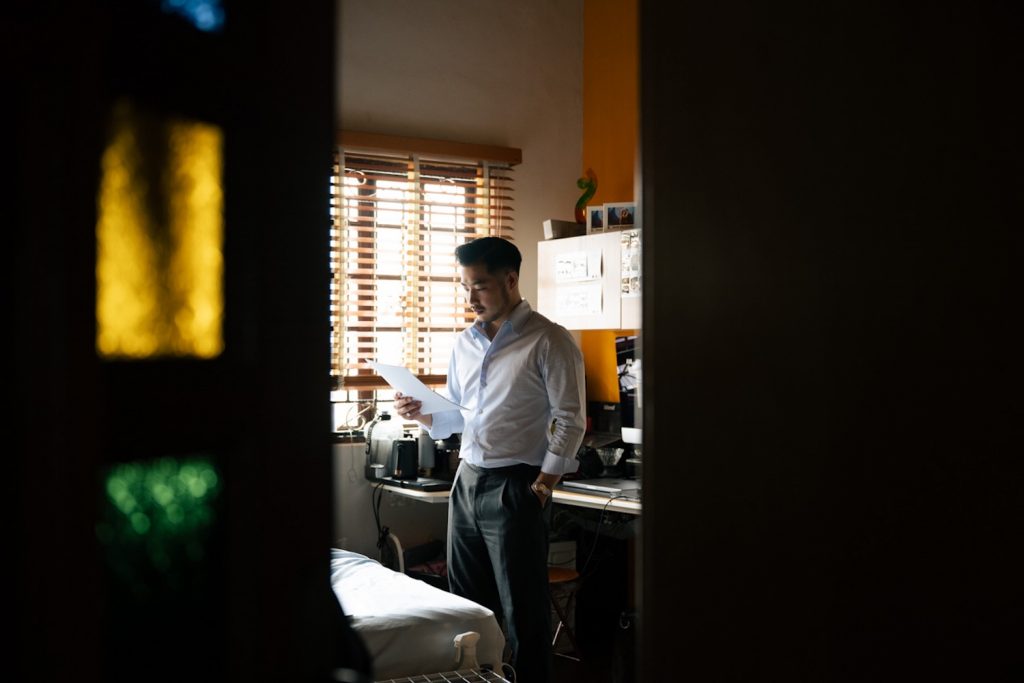
“We cannot control things that happen to us, but what we can control is what we do. I could either move on or cry over spilt milk. I could let this case drag me down and say that my life has turned out this way because of this or that. But this has already happened. How can I bounce back?”
Now, he finds solace in knowing that whatever comes next, he alone is steering the ship after navigating choppy waters. He is responsible for his own direction, his own mistakes, and—most importantly—his own redemption.
“My dad says I’m crazy for thinking this, but I am very, very thankful this happened to me. I don’t think I’ll do anything different. When you look back, you realise: all this happened for a reason.”

